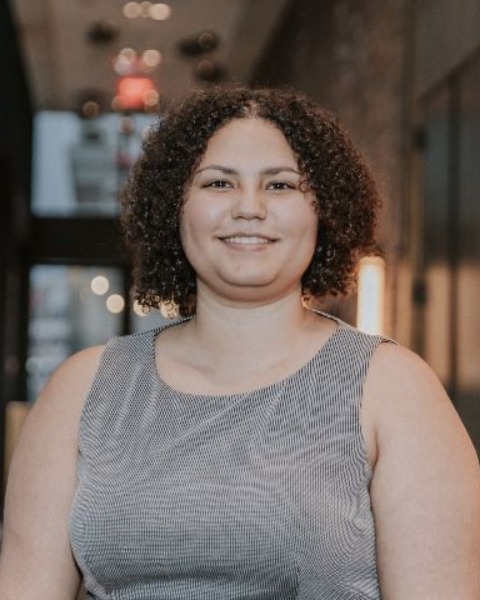Community engagement
Population Genetics
Precision Medicine
16- Promoting Diverse Recruitment in Genomic Research: The Impact of Community Partnerships in the BabySeq Project
Monday, June 10, 2024
5:00 PM – 7:00 PM ET
Location: The Gallery

Sheyenne Walmsley, MS, CGC (she/her/hers)
Genetic Counselor & Project Manager
Mass General Brigham, Massachusetts, United States
Presenter(s)
Partnering with local community stakeholders in clinical research may help encourage participation among diverse populations. We studied whether these partnerships could increase diversity in the second iteration of the BabySeq Project: a randomized controlled trial of infant genome screening.
We convened a diverse Community Advisory Board (CAB) from core enrollment cities (Boston, New York City, Birmingham) to provide input via virtual quarterly meetings with study staff. Collaborating with local pediatricians, we provided brief genomics education and hired local research assistants to recruit families in clinic. CAB input led to substantial protocol changes: 1) Revised the requirement to obtain informed consent from only one parent/guardian instead of two 2) Simplified and clarified consent language 3) Collaborated on formative research (interviews and surveys) 4) Implemented a less invasive sample type (heel stick) 5) Removed sample collection requirement from the control group or from parents, to avoid unnecessary pain or mistrust regarding sample storage.
The uptake rate and demographics of families recruited to date were compared to the first iteration of BabySeq using Fisher’s exact test.
In this second phase, the uptake rate is significantly higher (17.8% vs. 6.9%, p<0.001) and families are significantly more likely to identify as non-White (85.1% vs. 17.6%, p<0.001), Hispanic (31.5% vs. 7.4%, p<0.001), have an education below a bachelor’s degree (65.1% vs. 8.3%, p<0.001), and have a household income under $150,000 (91.5% vs. 43.7%, p<0.001).
Early recruitment experiences suggest that engaging local communities and clinicians and recruiting in diverse practices can help increase diversity in genomic research.
Authors: Sheyenne Walmsley, Mass General Brigham; Bethany Zettler, Mass General Brigham; Carol R. Horowitz, Icahn School of Medicine at Mount Sinai; Casie Genetti, Boston Children's Hospital; Sarita Edwards, The BabySeq Community Advisory Board & The E.WE Foundation; Robert C. Green, Mass General Brigham; Ingrid A. Holm, Boston Children's Hospital
We convened a diverse Community Advisory Board (CAB) from core enrollment cities (Boston, New York City, Birmingham) to provide input via virtual quarterly meetings with study staff. Collaborating with local pediatricians, we provided brief genomics education and hired local research assistants to recruit families in clinic. CAB input led to substantial protocol changes: 1) Revised the requirement to obtain informed consent from only one parent/guardian instead of two 2) Simplified and clarified consent language 3) Collaborated on formative research (interviews and surveys) 4) Implemented a less invasive sample type (heel stick) 5) Removed sample collection requirement from the control group or from parents, to avoid unnecessary pain or mistrust regarding sample storage.
The uptake rate and demographics of families recruited to date were compared to the first iteration of BabySeq using Fisher’s exact test.
In this second phase, the uptake rate is significantly higher (17.8% vs. 6.9%, p<0.001) and families are significantly more likely to identify as non-White (85.1% vs. 17.6%, p<0.001), Hispanic (31.5% vs. 7.4%, p<0.001), have an education below a bachelor’s degree (65.1% vs. 8.3%, p<0.001), and have a household income under $150,000 (91.5% vs. 43.7%, p<0.001).
Early recruitment experiences suggest that engaging local communities and clinicians and recruiting in diverse practices can help increase diversity in genomic research.
Authors: Sheyenne Walmsley, Mass General Brigham; Bethany Zettler, Mass General Brigham; Carol R. Horowitz, Icahn School of Medicine at Mount Sinai; Casie Genetti, Boston Children's Hospital; Sarita Edwards, The BabySeq Community Advisory Board & The E.WE Foundation; Robert C. Green, Mass General Brigham; Ingrid A. Holm, Boston Children's Hospital